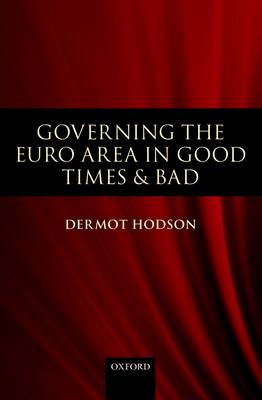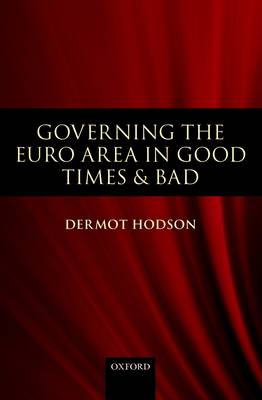
- Afhalen na 1 uur in een winkel met voorraad
- Gratis thuislevering in België vanaf € 30
- Ruim aanbod met 7 miljoen producten
- Afhalen na 1 uur in een winkel met voorraad
- Gratis thuislevering in België vanaf € 30
- Ruim aanbod met 7 miljoen producten
Zoeken
€ 201,45
+ 402 punten
Omschrijving
Can the euro area survive without a more centralized economic policy? What lessons can be drawn from Economic and Monetary Union about new modes of policy-making in the European Union? Have euro area members spoken with one voice on the international stage and what does this mean for the European Union's ambitions to be a global actor in its own right? This book explores these three key questions through an in-depth analysis of euro area governance from the launch of the single currency in 1999 to the sovereign debt crisis of 2010. Drawing insights from the study of European Union politics, comparative political economy and international political economy, it examines: Economic and Monetary Union's break from the Community method of policy-making; the European Central Bank's ambivalence about the pursuit of ever closer union; the Eurogroup's rise and fall as a forum for economic policy coordination; the interplay between national fiscal institutions and the stability and growth pact; the broad economic policy guidelines' failure to apply peer pressure; the European Union's influence within the G20 and the International Monetary Fund at the height of the global financial crisis; euro diplomacy towards China and other rising powers; and current debates about the fate of EMU and the reform of euro area governance in the aftermath of the global financial crisis. The book's conclusions challenge claims that the euro area is in crisis because of its decentralized approach to decision-making alone and the corollary that the euro can be saved only through a further transfer of sovereignty to the supranational level.
Specificaties
Betrokkenen
- Auteur(s):
- Uitgeverij:
Inhoud
- Aantal bladzijden:
- 186
- Taal:
- Engels
Eigenschappen
- Productcode (EAN):
- 9780199572502
- Verschijningsdatum:
- 11/10/2011
- Uitvoering:
- Hardcover
- Formaat:
- Ongenaaid / garenloos gebonden
- Afmetingen:
- 160 mm x 236 mm
- Gewicht:
- 430 g

Alleen bij Standaard Boekhandel
+ 402 punten op je klantenkaart van Standaard Boekhandel
Beoordelingen
We publiceren alleen reviews die voldoen aan de voorwaarden voor reviews. Bekijk onze voorwaarden voor reviews.











